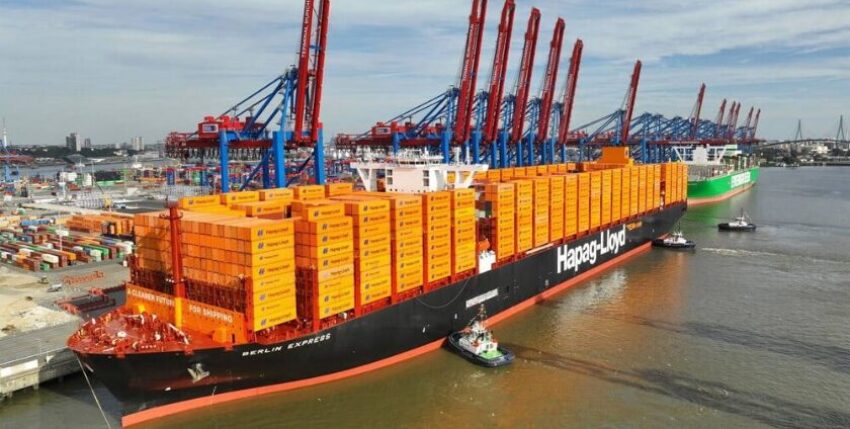The world's fifth-largest shipping company has committed to reducing its absolute greenhouse gas emissions by around a third by 2030 and to net-zero fleet operations by 2045.
This is to be achieved through the modernisation of the fleet, new drive technologies and research into and procurement of CO2-neutral alternative fuels (e-fuels), such as "green" methanol.
Hapag-Lloyd has been modernising and expanding its fleet for years. In total 12 new large container ships ordered (see marineforum.online from 23 June 2021), which can be operated with modern and efficient high-pressure dual-fuel engines and are already running.
A study is currently also being conducted into "Sailing container ships" with methanol engines (see marineforum.online from 18.12.2023).
In order to reduce fuel costs and CO2 emissions, the fleet has already been travelling at an average of 1.0 to 1.5 knots slower for more than a year and a half, the company announced. Hapag-Lloyd can therefore envisage the entire range of alternative propulsion systems: So also nuclear reactors.
Nuclear reactors have a certain potential because they can make an important contribution to decarbonisation. The costs would probably be acceptable and the ships could sail a little faster again. According to the head of Hapag-Lloyd, we do not want to rule this out until it has been thoroughly investigated.
Modern nuclear liquid salt reactors are not comparable with the military facilities on aircraft carriers, and it will be years before we know whether nuclear propulsion is actually a realistic option. We may not even know until the next decade, according to the shipping company.
According to Hapag-Lloyd, it has over 280 container ships, a huge technological challenge for the coming decades.
kdk
Source: ndr








